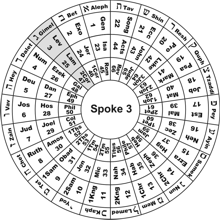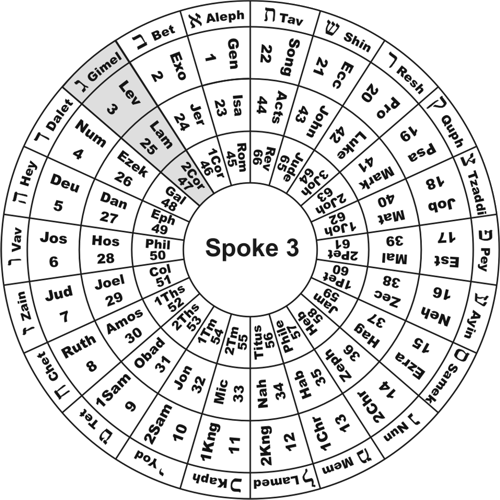Gimel - Poverty and Wealth
Then said Jesus unto his disciples, Verily I say unto you, That a rich man
shall hardly enter into
the kingdom of heaven. And again I say unto you, It is easier for a camel to go
through the eye of a needle, than for a rich man to enter into the kingdom of
God. When his disciples heard it, they were exceedingly amazed, saying, Who then
can be saved? But Jesus beheld them, and said unto them, With men this is
impossible; but with God all things are possible.
Matthew 19:24ff

As usual, the Sepher Yetzirah
provides succinct, yet profound, insight into
the meaning of Gimel, stating that God "made the letter
Gimel king over Wealth." This simple statement is an accurate synthesis of the
general symbolic use of the camel throughout Scripture. With few
exceptions, most verses that mention a camel
also speak of wealth, particularly
the wealth of the nations (Gentiles, Goyim). Camels make their
biblical debut as part of Pharaoh's gift to Abram after the regrettable incident
with his wife Sarah. They next appear when Abraham's servant was sent to find a
wife for Isaac, and "the servant took ten camels of the camels of his
master, and departed; for all the goods of his master
were in his hand." Then, when he had found the woman the Lord had
appointed as a wife for Isaac, he described his master's wealth to her and
her family, saying:
And the LORD hath blessed my master greatly; and he is become great: and he
hath given him flocks, and herds, and silver, and gold, and menservants, and
maidservants, and camels, and asses.
Genesis 24:35
Camels also appear in the description of the wealth of Isaac's son, Jacob:
And the man [Jacob] increased exceedingly, and had much cattle, and
maidservants, and menservants, and camels, and asses.
Genesis 30:43
Much later, when the Gentile Queen of Sheba heard of Solomon's fame, she ...
... came to Jerusalem with a very great train, with camels that bare spices,
and very much gold, and precious stones.
1 Kings 10:2
Likewise, God usedcamels in Isaiah to describe the great treasure that will flow unto the Jews:
the abundance of the sea shall be converted unto thee, the forces of the
Gentiles shall come unto thee. The multitude of camels shall cover thee, the
dromedaries [young camels] of Midian and Ephah; all they from Sheba shall come:
they shall bring gold and incense; and they shall shew forth the praises of the
LORD.
Isaiah 60:5
God also used camels in his description of the wealth of Job:
His substance also was seven thousand sheep, and three thousand
camels, and
five hundred yoke of oxen, and five hundred she asses, and a very great
household; so that this man was the greatest of all the men of the east.
Job 1:3
This continuous biblical theme linking camels to wealth was both recognized
and ratified by the Lord Jesus Christ when he chose the camel to represent a
rich man in what certainly is one of his most famous sayings, quoted at the head
of this section.
It is easier for a camel to go through the eye of a needle, than for a
rich man to enter into the kingdom of God.
Matthew 19:24
This also links to Spoke 19, because the
name of the Nineteenth letter Quph (ק) means
the Eye of a Needle and carries, in part, the connotation of the narrow way of the
Cross in which the follower of Christ must be willing to lay down absolutely
everything to enter into the Kingdom of God, as it is written:
Then said Jesus unto his disciples, If any man will come after me, let him deny
himself, and take up his cross, and follow me. For whosoever will save his life
shall lose it: and whosoever will lose his life for my sake shall find it. For
what is a man profited, if he shall gain the whole world, and lose his own soul?
or what shall a man give in exchange for his soul?
Matthew 16:24
Though God demands to be first in the heart of his people, he assures that all
who obey him and deny themselves will be rewarded, as promised by the Lord Jesus
himself:
And Jesus answered and said, Verily I say unto you, There is no man that hath
left house, or brethren, or sisters, or father, or mother, or wife, or children,
or lands, for my sake, and the gospel's, But he shall receive an hundredfold now
in this time, houses, and brethren, and sisters, and mothers, and children, and
lands, with persecutions; and in the world to come eternal life.
Mark 10:29
This promise of abundance, especially the ultimate abundance of eternal life,
given by God to each and
every believer brings forth the primary biblical significance of
the letter Gimel. As mentioned above, the first Gimel verse in the great
alphabetic Psalm 119 reveals the opulent heart of this letter, saying,
"Deal bountifully (גמל), gamol) with thy servant, that I may live, and
keep thy word." This links directly with the passage from 2
Corinthians quoted at the head of this page which contains the only two
occurrences of the word bountifully to be found in the
King James New Testament.
Gimel is the root of the word
גומל (gomel), which denotes a
benefactor or one who performs acts of kindness. This
is the meaning found of the Gimel verse in the alphabetic verses at
the end of Proverbs 31, "She will do him good (גמלתהו טוב, gamaltahu tov)
and not evil all the days of her life." Likewise, Scripture uses this
root to describe the abundant love that God bestows on us:
I will mention the lovingkindnesses of the LORD, and the praises of the LORD,
according to all that the LORD hath bestowed on us (גמלנו, gamalanu), and the
great goodness toward the house of Israel, which he hath bestowed on them
(גמלם,
gamalam) according to his mercies, and according to the multitude of his
lovingkindnesses.
Isaiah 63.7f
This image of God's abundant generosity, love, and kindness encapsulates the essential meaning
of Gimel, as noted by Rabbi Munk:
Gimel represents God's eternal beneficence. Without God's chesed
[loving-kindness], the entire world could not exist for even a moment. Day in
and day out, He gives us the spirit of life, wisdom and strength, the use of our
limbs, sensation, and speech.
To see just how strongly Gimel governs the themes of Cell 47 on
Spoke 3, consider these characteristic words and phrases
found in 2 Corinthians, (multiple occurrences are indicated
in parentheses):
Abound (3), abounded, aboundeth, abundance (5), abundant (4),
abundantly (4), benefit, bestowed (2), bountifully (2), bountifulness, bounty
(2), cheerful giver, dispersed abroad, distributed, he hath given to the poor,
liberal distribution, no lack, rich (3), receive the gift, sufficiency (2),
sufficient (4), supplied, supplieth, supply (2), the gift bestowed upon us, the
riches of their liberality, treasure.
The entirety of the eight and ninth chapters of 2 Corinthians deal
explicitly with teachings about
giving, as typified in such passages as this
that opens 2 Corinthians 8, where Paul lauds the great generosity of the
churches of Macedonia:
Moreover, brethren, we do you to wit of the grace of God bestowed on the
churches of Macedonia; How that in a great trial of affliction the abundance of
their joy and their deep poverty abounded unto the riches of their liberality.
For to their power, I bear record, yea, and beyond their power they were willing
of themselves; Praying us with much intreaty that we would receive the gift, and
take upon us the fellowship of the ministering to the saints. And this they did,
not as we hoped, but first gave their own selves to the Lord, and unto us by the
will of God.
2 Corinthians 8:1-5 (Spoke 3, Cycle 3)
No book in Scripture more clearly illustrates the significance encoded in the
third letter than this, the third Epistle of Paul located on the third Cycle of
the third Spoke. The persistent theme of abundant generosity began in the first
chapter when Paul gave thanks for "the gift bestowed upon us." It
continued to build throughout the book until he could no longer contain his
ecstasy and he burst forth with gratitude, crying "Thanks be unto God for
his unspeakable gift!" What more could he say? The revelations he received
surpassed the limits of language! Perhaps these were some of the
"unspeakable words, which it is not lawful for a man to utter," that
he had heard when he was caught up to the "third heaven" (2
Corinthians 12). Thus we understand why it is in 2 Corinthians that Paul, who suffered so greatly
in his ministry of the Gospel, described himself "as poor, yet
making many rich, as having nothing, and yet possessing all
things," and why later in the same book he used precisely the
same language, expressing the Gospel in terms of poverty and
wealth :
For ye know the grace of our Lord Jesus Christ, that, though he
was rich, yet for your sakes he became poor, that ye through his poverty might
be rich.
2 Corinthians 8:9 (Spoke 3, Cycle 3)
This is the everlasting Gospel of the Lord Jesus
Christ ...
Who, being in the form of God, thought it not
robbery to be equal with God: But made himself of no reputation, and took
upon him the form of a servant, and was made in the likeness of men: And
being found in fashion as a man, he humbled himself, and became obedient
unto death, even the death of the cross.
Philippians 2:6-7
He is our divine Benefactor, the
ultimate Gomel, who opened heaven's door with the key of
his own blood to save our souls from hell and to bring us into his
glorious Kingdom. "For God so loved the world, that he gave his only
begotten Son, that whosoever believeth in him should not perish, but have
everlasting life." Yet this unspeakably precious gift was but the
beginning of the abundance God was about to bestow upon his children, as
declared by the Lord Jesus himself when he prepared his disciples for his
death upon the Cross, saying, "Nevertheless I tell you the truth; It is
expedient for you that I go away: for if I go not away, the
Comforter will not come unto you; but if I depart, I
will send him unto you."
|



